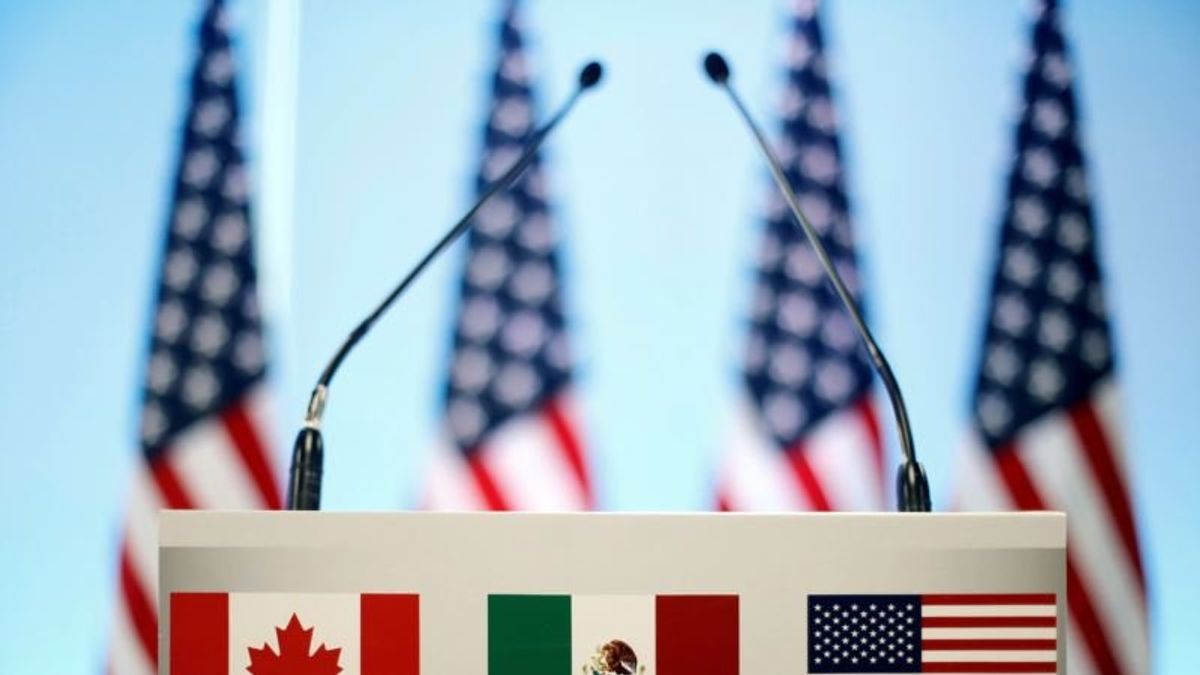
Trump, Mexico Expect Progress in Stalled NAFTA Talks
Trump, Mexico Expect Progress in Stalled NAFTA Talks

PUERTO VALLARTA, MEXICO —
U.S. President Donald Trump spoke warmly of Mexico's incoming leftist president on Monday, saying he expected to get "something worked out" on NAFTA, while a top Mexican official said there was scope to revive the trade talks this week.
"We're talking to Mexico on NAFTA, and I think we're going to have something worked out. The new president, terrific person," Trump said in a speech at the White House about American manufacturing.
"We're talking to them about doing something very dramatic, very positive for both countries, he said, without giving more details.
Talks to reshape the 1994 trade accord have been underway since last August. But they stalled in the run-up to the July 1 presidential election in Mexico, which produced a landslide victory for veteran leftist Andres Manuel Lopez Obrador.
The United States, Mexico and Canada have been at odds over U.S. demands to impose tougher content rules for the auto industry, as well as several other proposals, including one that would kill NAFTA after five years if it is not renegotiated.

Mexican Economy Minister Ildefonso Guajardo, who last week expressed hope an agreement in principle on NAFTA could be reached by the end of August, is due to hold talks with U.S. Trade Representative Robert Lighthizer at the end of the week in Washington.
He will be accompanied by Jesus Seade, the designated chief NAFTA negotiator of the incoming Mexican administration.
"There's clearly a window of opportunity to be able to bed down a series of open issues which are not numerous, but are very complex," Guajardo said on the sidelines of a summit of the Pacific Alliance trade bloc in the western coastal city of Puerto Vallarta.
Guajardo is due to meet his Canadian counterpart Chrystia Freeland on Wednesday, also to discuss NAFTA.
After the election, top officials from both the outgoing and new Mexican governments met in Mexico City with senior Trump administration officials led by Secretary of State Mike Pompeo.
Seade said the visit had sent out "excellent" signals.
"We hope these signals translate into a willingness to move forward," Seade told reporters in Puerto Vallarta.
The talks have been clouded by tit-for-tat measures over trade after the Trump administration slapped tariffs on U.S. steel and aluminum imports.
The United States is also exploring the possibility of imposing tariffs on auto imports, though Guajardo said it was too early to speculate on how that would play out.
Mexico's foreign ministry said on Monday that South Korea had initiated the process of seeking associate membership in the Pacific Alliance, which comprises Colombia, Chile, Mexico and Peru and is seeking to deepen free trade.
Singapore, Australia, New Zealand and Canada were last year admitted as associate members by the alliance. For Mexico, the expansion is part of a push to diversify its trading partners in the wake of Trump's previous threats to pull out of NAFTA.
Guajardo indicated that despite his optimism about reaching a deal, risks still exist.
"The biggest risk is that instead of moving forward with an agenda of opening and integration, we move backwards, closing our economy and really undoing what we've built in the last two and a half decades," Guajardo said.
 Senate Confirms Robert Wilkie for Veterans Affairs SecretaryNext PostUS Judge Allows Lawsuit Over End of Immigrant Protections to Proceed
Senate Confirms Robert Wilkie for Veterans Affairs SecretaryNext PostUS Judge Allows Lawsuit Over End of Immigrant Protections to Proceed






